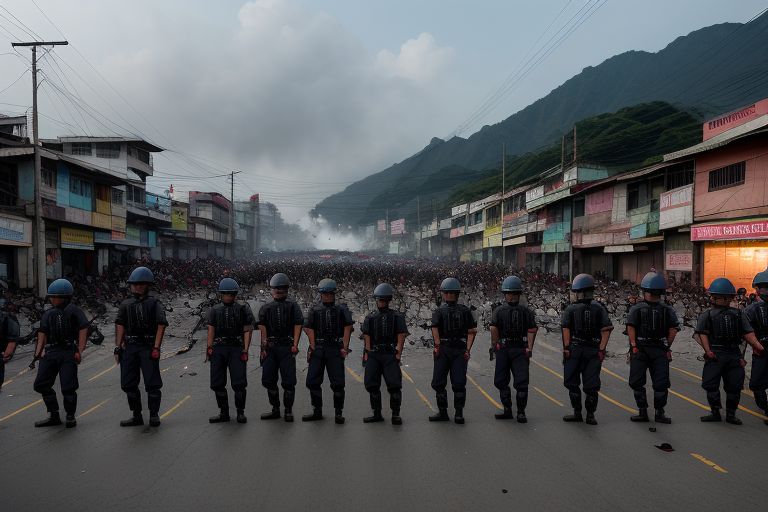Violence rose in east Nepal today; Hindu activists disrupted security forces in Itahari, which prompted the authorities to declare a curfew in the Dharan area. It only took several days for a riot to ensue after a group of Hindu activists protested against cow slaughter, which the Hindus deem as a blasphemous act.
The Sunsari District Administration Office put the curfew in the Dharan Sub-Metropolitan City due to increased agitation. It has also become a commonplace to see armed police patrolling the road between Itahari and Dharan, so that any violence that might erupt is kept contained.
To further enhance the measure, authorities have closed off the entrance to Dharan at the four way junction. There has been disruption in transportation on the Koshi Highway due to the curfew with population and travellers in this area being affected.
To prevent any eventualities, the district administration has called on the public to avoid all social, religious or political functions, crusades, meetings, processions, agitations or demonstrations. The intention here is to avoid aggravation of the situation and preserve order in this part of the world.
The lack of support to continue the protest in Itahari has indeed forced protesters to shift gears and start protesting against the Nepali government. Their grievances primarily seem to be against what they consider the government’s betrayal of Hindu concerns over religious sensitivity.
This case reveals that the conflict between secular practices and religious concerns is still present in Nepal. The country that proclaimed a secular state in 2015 has faced the problem of how to admit various forms of religious diversity while preserving stability in society.
Responsible local authorities are trying to talk to the leaders of protests to understand them and find ways to resolve current conflict. Unfortunately the balance of power has not changed much and both parties still seem to be relatively unflexed.
People within the region are the ones being affected most through the curfew and road closures. Local enterprises in Dharan and Itahari have been closed, and the life of the populace has been severely affected. Emergency and essential services continue to be available while people are encouraged to remain at home as much as possible.
Leaders in politics of the country from different parties have come out to support the demonstrators and, at the same time, urged the protesters and the police authorities not to be reckless. At the same time, they stress the importance of coming to peaceful negotiations in order to solve the problems that produced such an encounter.
International human rights organizations are not an exception, and there are signals indicating that human rights can be violated during such periods. They want the police to respect the international best practises in managing populace and public order.
It spotted all national coverage by media and many are interpreting different potential views over the events of Itahari and Dharan with reference to religious freedom and secularism of Nepal. That is why, incident as this one may trigger discussions over the secular constitution of the country and the role of religion in society.
In the evening, when it grows dark, both Itahari and Dharan city looks nearly empty with armed policemen standing around. The local people wish for a speedy resolution of the conflict, even as many people realise that the source of the conflict may be harder to unroot.
The next few days will decide if this is going to be a one-off or if it would trigger further debate on social and political issues in Nepal. It is left for the local authorities to balance between this sometime precarious stand and respect for the rights of the protesters as well as constitutional requirements on the non-discrimination of any group of citizens on grounds of religion.


